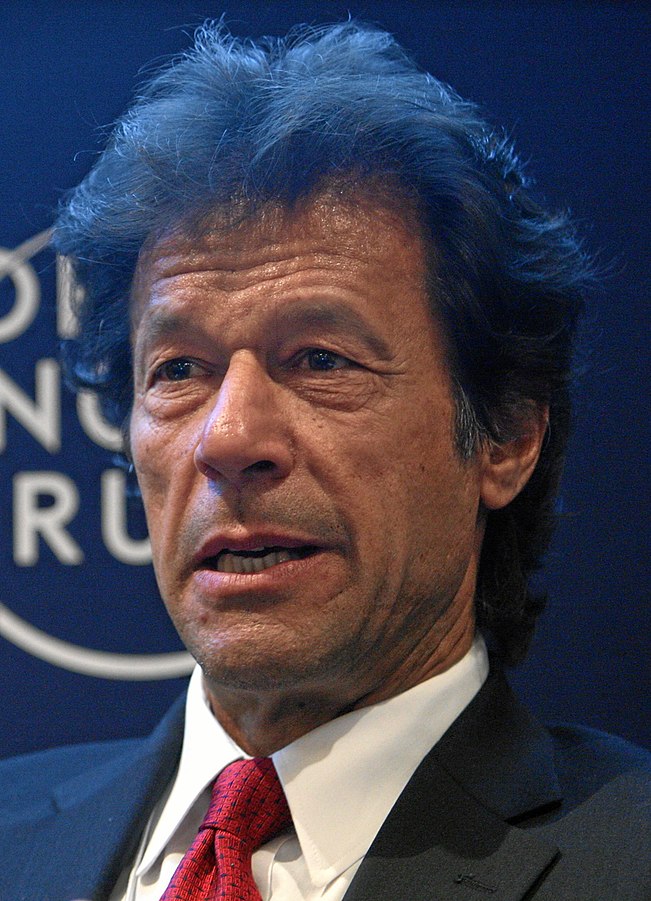
ISLAMABAD — Pakistan’s newly elected parliament convened Monday for the first time since last month’s general elections that saw the party of former cricket star turned politician Imran Khan win most seats, propelling him toward the post of the country’s next prime minister.
The lawmakers were sworn in at a brief ceremony in the 342-seat National Assembly, the decision-making lower house of parliament. Later on Monday, fireworks are to mark the eve of Pakistan’s Independence Day.
The parliament is to elect a speaker and his deputy Wednesday and vote on the prime minister the following day. The swearing-in ceremony for the prime minister is due Saturday.
Khan’s populist Tahreek-e-Insaf party won 115 seats in the July 25 vote, requiring it to form a coalition.
In the days after the elections, party spokesman Fawad Chaudhry said more lawmakers joined the party’s ranks and that it now enjoys the backing of 180 parliament members after several women lawmakers, minority and independents sided with Khan. He needs 172 lawmaker votes to be become prime minister.
Khan has campaigned on the promise of a “New Pakistan” with justice for all, pledging to wipe out corruption and help the poor. He has said he would run the country like it has never been run before, though some of his popular and influential backers, who joined his party weeks before the elections, have questionable pasts and some of them even face charges.
The 65-year-old Khan has also promised to create 10 million jobs in Pakistan, where employment rate is high and more than 65 per cent of the country’s 200 million people are under the age of 35.
Since the elections, Khan has adopted a conciliatory approach to Pakistan’s neighbours and allies, saying he wants peace with hostile neighbour India, praising China’s economic strategy for reducing widespread poverty and sending a message to Washington that he wants good relations, based on mutual respect.
He also reached out to Afghanistan, suggesting the two nations adopt a policy of open borders, a relationship similar to the European Union. Khan has also disparaged liberals, attacked feminism, embraced radical religious parties and vowed to uphold Pakistan’s blasphemy law.
He enjoys the support of the country’s powerful military establishment, although he has been known to go his own way.
As he entered parliament on Monday, lawmakers from his party chanted slogans praising Khan. Pakistan’s former President Asif Ali Zardari and head of the ex-ruling Pakistan Muslim League party, Shahbaz Sharif, also attended Monday’s ceremony. Khan avoided shaking hands with the two.
Pakistan’s opposition parties and rights activists have claimed election results were manipulated by the military, which has ruled Pakistan directly or indirectly for most of its history. The military denies the allegations, saying it only provided security during the balloting.
The Pakistan Muslim League party has claimed the elections were rigged to prevent disgraced former Prime Minister Nawaz Sharif from returning to power.
Sharif, who is currently appealing a 10-month prison sentence for the misuse of fund to purchase luxury apartments in Britain, was arrested on July 13 after returning from London.
As Pakistan’s new lawmakers took their oath of office, Sharif was taken by armoured car from his jail cell at Adiala prison to the accountability court in the capital, Islamabad, to face more corruption charges.
Sharif’s daughter Maryam was sentenced to seven years in the same case and her husband to one year. Both are also appealing their sentences.
Though the National Assembly is tasked with passing laws, its decisions must be approved by the Senate, or upper house of parliament, which consists of 104 members who are elected by the lower house and the four provincial assemblies.